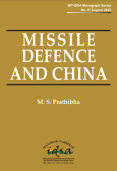The McMahon Line: A hundred years on
On 3rd July 1914 nearly a hundred years ago at Simla, Tibet and India signed the Simla Convention that gave birth to the McMahon Line separating Tibet from India in the eastern sector. Much is made by some that the Simla Convention was not a legal document but from the time of the Convention till 23rd January 1959, the Chinese government never officially, in any document, ever challenged the McMahon Line.
- R. S. Kalha
- July 03, 2014











